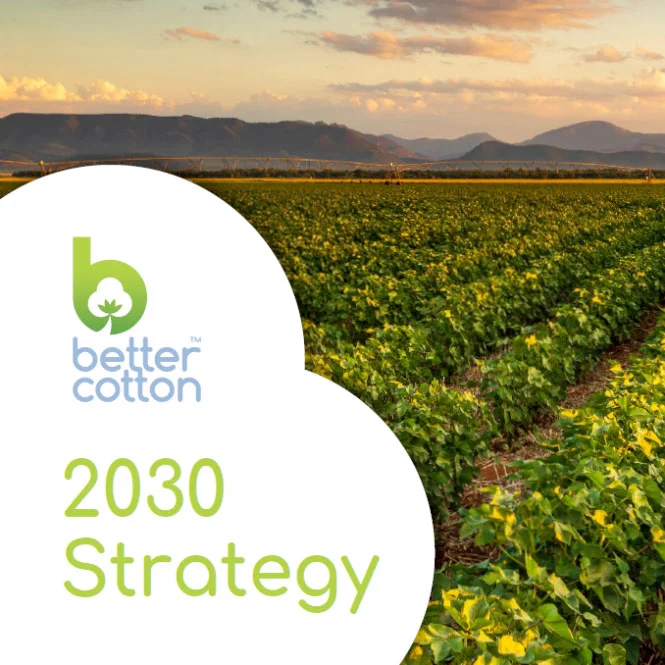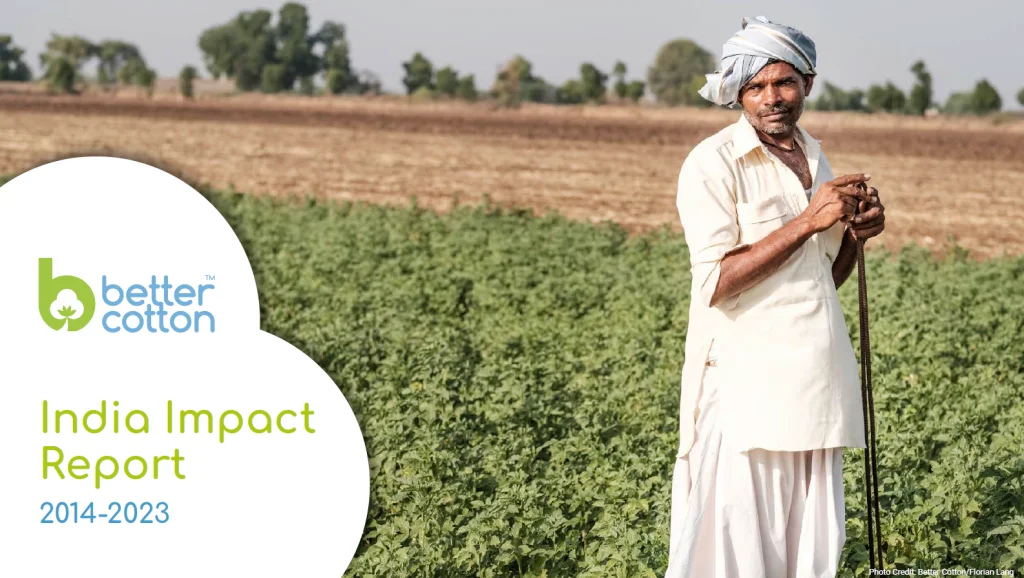- Who we are
- What we do
In just over 10 years we have become the world’s largest cotton sustainability programme. Our mission: to help cotton communities survive and thrive, while protecting and restoring the environment.
- Where we grow
Better Cotton is grown in 22 countries around the world and accounts for 22% of global cotton production. In the 2022-23 cotton season, 2.13 million licensed Better Cotton Farmers grew 5.47 million tonnes of Better Cotton.
- Our impact
- Membership
Today Better Cotton has more than 2,700 members, reflecting the breadth and diversity of the industry. Members of a global community that understands the mutual benefits of sustainable cotton farming. The moment you join, you become part of this too.
- Associate Membership
- Civil Society Membership
- Producer Organisation Membership
- Retailer and Brand Membership
- Supplier and Manufacturer Membership
- Find Members
- Member Monitoring
- Better Cotton Platform
- myBetterCotton
- Resources – Better Cotton Conference 2022
- Complaints
- Whistleblowing
- Safeguarding
- Get Involved in the Better Cotton Programme
- Thank you for contacting us
- Better Cotton’s Data Privacy Policy
- Log in
- Members’ Area
- Request for Proposals
- Better Cotton Cookie Policy
- Web Reference
- Measuring Cotton Consumption
- How to Implement the Chain of Custody Standard
- Resources – Better Cotton Conference 2023
- Certification Bodies Old
- Latest
- Sourcing
- Latest
The founding premise of Better Cotton is that a healthy sustainable future for cotton and the people that farm it is in the interests of everyone connected with it.
Let us help you find what you’re looking for
Results for {phrase} ({results_count} of {results_count_total})Displaying {results_count} results of {results_count_total}
We are pleased to announce the results of the 2018 BCI Council Election.
The Council Election was conducted 14-18 May via an online platform. There was one seat eligible for election in each of the membership categories listed below. Here is a list of the successful candidates. You can find the full resultshere.
Producer Organisations
Cotton Australia, Simon Corish
Suppliers and Manufacturers
Basil Commodities, Pathik Patel
Retailers and Brands
Hennes & Mauritz, Harsha Vardhan
About the BCI Council
The Council is an elected board whose role it is to ensure that BCI has a clear strategic direction and adequate policy to successfully fulfil its mission. Council Membersare organisations representing the different membership categories: civil society; producers; retailers and brands; and suppliers and manufacturers.
How is the Council Formed?
The General Assembly, consisting of all BCI Members, is the ultimate authority of BCI and elects a Council to represent it. Positions are open to all Members (except Associate Members). Each membership category has three seats, two elected and one appointed, for a total of 12. Once elected, the council has the option to appoint up to three additional independent Council Members. See all BCI Council Members here.
About the Better Cotton Initiative
The Better Cotton Initiative (BCI), a global not-for-profit organisation, is the largest cotton sustainability programme in the world. Last year, together with our partners we provided training on more sustainable agricultural practices to 1.6 million farmers from 23 countries. We are truly a joint effort, encompassing organisations all the way from farms to fashion and textile brands, driving the cotton sector towards sustainability. Thanks to these efforts, Better Cotton accounts for around 12% of global cotton production. BCI aims to transform cotton production worldwide by developing Better Cotton as a sustainable mainstream commodity. By 2020, our goal is to train 5 million farmers worldwide on more sustainable agricultural practises, and account for 30% of global cotton production.


